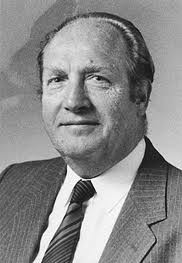Posted on by Aidan Thompson

Denis Lawton, a Fellow of SES, served for many years on the Executive of the Society for Educational Studies and was Chair from 2000 to 2003. He was born in a South Wales mining village in 1931 and educated at St Ignatius College and Goldsmiths’ College University of London. He became a teacher of English and taught in a Kent grammar school and a secondary modern school in south-east London. In 1963, he was seconded from his teaching post to the Sociological Research Unit (SRU) at the University of London, Institute of Education as a Research Officer on a project led by Basil Bernstein investigating the ‘interrelationships between language usage in working-class family environment and responsiveness to education in school’. Together with Bernstein and Jean Floud, Denis Lawton was a central protagonist the development of the Institute’s work in the sociology of education.
Following his doctorate from the Institute, he was appointed as a lecturer at the IoE in 1964. Three years later, he became senior lecturer in Curriculum Studies, then reader in 1972, when he established the Institute’s highly respected Department of Curriculum Studies, becoming professor of education two years later. By 1978, he had been appointed deputy director of the Institute. From 1983 to 1989 Denis Lawton served as Director of the Institute of Education. Clearly, Denis Lawton was a much respected and very effective senior manager. However, his real interests were academic rather than administrative (Aldrich and Woodin, 2021). In 1989 he stepped down as Director to return to the Department of Curriculum Studies.
Denis Lawton’s many publications throughout his career on language, culture and the curriculum, social class, and the politics of education remain highly respected both nationally and internationally. Amongst others, his publications include: ‘Social Class, Language and Education’ (1968); ‘Social Change, Education Theory and Curriculum Planning’ (1973); ‘Class, Culture and the Curriculum’ (1975); ‘Social Justice and Education’ (1977); ‘The Politics of the School Curriculum’ (1980); ‘An Introduction to Teaching and Learning’ (1981); ‘Curriculum Studies and Educational Planning’ (1983, with P. Gordon); ‘HMI’ (1987); ‘Education, Culture and the National Curriculum’ (1989); ‘Education and Politics in the 1990s’ (1992); ‘The Tory Mind on Education’ (1994); ‘Beyond the National Curriculum’ (1996); ‘Royal Education Past, Present and Future’ (1999, with P. Gordon); ‘A History of Western Educational Idea’s (2002); and ‘Education and Labour Party Ideologies 1900–2001 and Beyond’ (2004). His commitment to social justice and equality of educational opportunity was lifelong.
I first became aware of Denis Lawton and his work as an undergraduate in 1970. I bought a hardcover copy of ‘Social Class, Language and Education’ for all of £1 5s 0d. At the time, I did not anticipate the effect that the book and Denis would have in shaping my professional career. Along with many of Denis’ publications, the book remains on my bookshelves today.
I, too, became a teacher of English, in two comprehensive schools in south-east London and first met Denis Lawton when I later undertook an MA at the Institute. Thereafter, he became a generous and kind mentor. Ultimately, Denis became a colleague when I joined the Institute of Education as Dean and its first Professor of Teacher Education. I know that for countless colleagues and students Denis Lawton was, and is, a greatly respected source of inspiration. Whether it be in one of the numerous Institute committee meetings, over a coffee in the cafeteria, subsequently named the Lawton Room in his honour; or sharing a meal at ‘The Italian restaurant’ on Southampton Row, it was always a delight to be in Denis’ warm, urbane, and stimulating company. To have known and worked with Denis Lawton was a profound pleasure and privilege.
Denis died peacefully on 24 June 2022.
Professor Jon Davison
Chair SES 2006 – 2016
No replies to this post yet